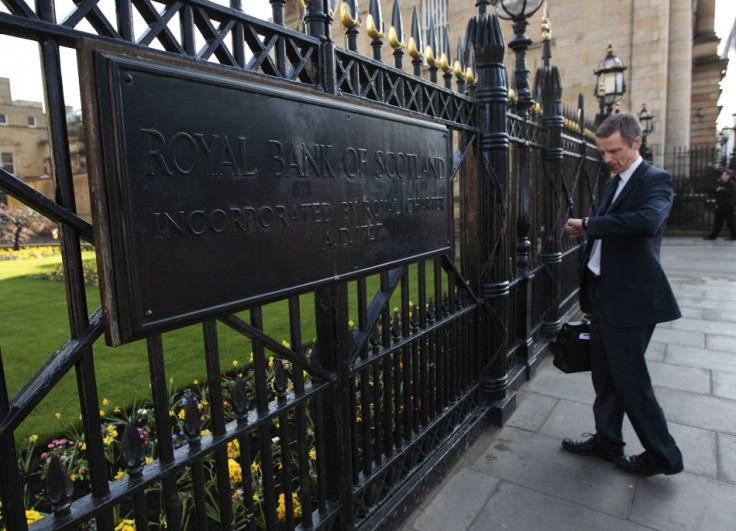RBS: Britain Shouldn't Rush to the Exit

Strategically, it doesn't make a lot of sense.
Britain's decision to rescue a collapsing Royal Bank of Scotland Group in 2008 was undoubtedly the right one - and the £45.5bn tab likely insulated the rest of the banking sector and perhaps the broader economy from further contagion - but its recent moves to exit the lender appear oddly motivated.
Why buy an investment bank and then turn it into a utility?
Political expediency has gifted one of Britain's biggest economic and tax contributors new rules and regulations that will effectively neuter its growth potential for decades to come: higher capital requirements, stricter conditions on bonuses and sharper separations of business units will all combine to reduce returns, slow lending and stunt capital creation and credit growth.
Will they be safer? Who's to say? It's worth remembering that the banks at the epicentre of the global credit crisis - be they in the US, Europe or here in the United Kingdom - were the ones that operated under the highest levels of government and regulatory scrutiny. The so-called "locusts" in the private equity and hedge fund world, meanwhile, watched in horror as their condescending brethren nearly marked-to-market the global financial system out of existence.
What is certain, however, is that Chancellor George Osborne's praise of RBS' path towards being a "British-based bank, focused on serving British businesses and consumers, with a smaller international investment bank to support that activity rather than to rival it" will play incredibly well with the "hang-'em and tax-'em" brigade but will do very little for the British taxpayer or the many billions the government has already committed to this enterprise.
RBS isn't coming back - at least not in any form that remotely resembles the financial behemoth Fred Goodwin left five years ago.
Some may argue that's a good thing. Others would do well to wonder what a humble high street lender with a tiny balance sheet, a permanently stained brand name and a collection of established and upstart rivals in an already crowded and declining market will be worth once (if?) this "Citizen's IPO" becomes a reality.
Not much, I fear, is going to be the answer.
The taxpayer now owns 82 percent of the worst performing bank stock in the country and is some 169 pence - or a 49 percent gain from today's trading level - from breaking even.
I can understand why Osborne is so keen to rid himself of this New Labour legacy albatross - even if he books a loss when the government's 82 percent stake is finally floated he can reasonably argue that it was neither his decision to rescue it nor his responsibility to run it.
But it anyone in his government could see beyond today's headlines, they might be minded to consider the benefits of longer-term ownership. After all, Britain's getting shafted in Europe on the issue of bank bonus caps anyway, and governments are flagrantly flaunting the prohibitions on state support for financial institutions from Dublin to Madrid.
Add to that the fact that, as far as we can tell, the Bank of England feels it's pretty much emptied the chamber of its quantitative easing "bazooka" and is left with little ammunition to fire up domestic growth beyond the revolver of its Treasury-sponsored "Funding for Lending" (FLS) scheme.
Keeping state ownership for a prolonged period of time could not potentially create a sort of "lab rat" condition under which a defined proportion of FLS was channelled through RBS and into the real economy for the benefit of those who, you know, actually pay for that economy to exist in the first place.
Sadly, that's not going to happen.
What *will* happen, however, is the continued transition of a giant investment bank with huge earning potential and a lousy manager into a tiny high street lender with impotent ability and a very nice man in the corner office.
Neither are likely to be worth very much in the new banking normal.
© Copyright IBTimes 2025. All rights reserved.





















